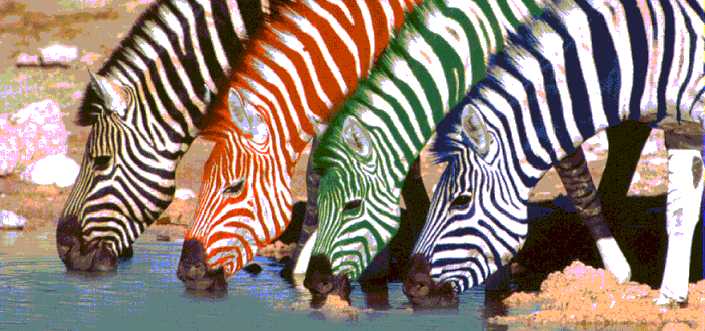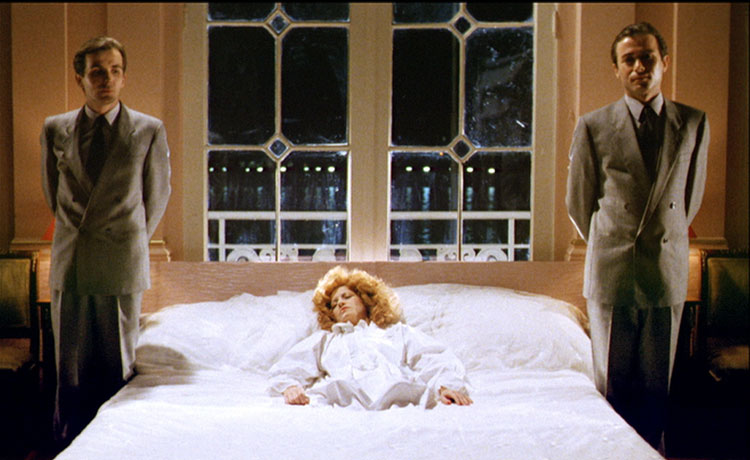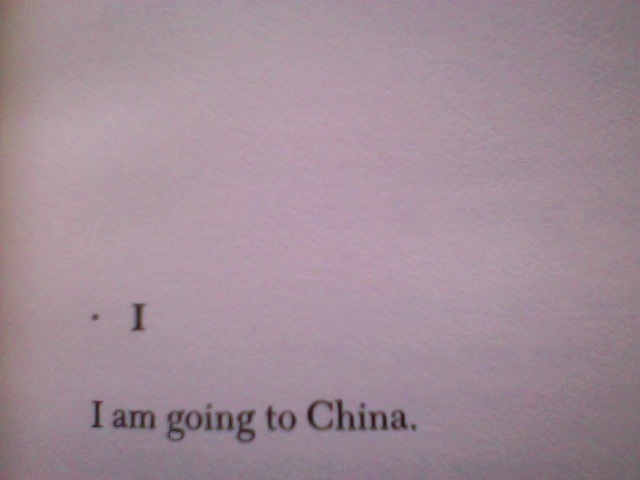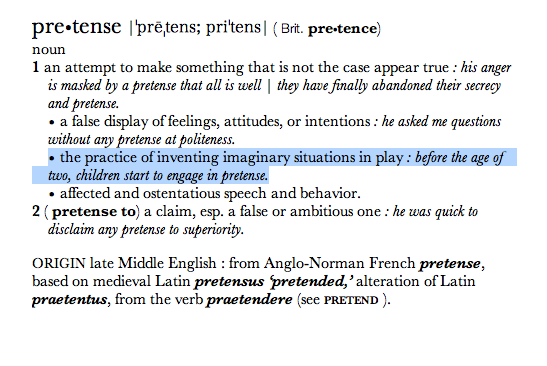Chasing the Red Herrings in Greenaway’s Z+OO: a symposium of myself
It starts with a crash. You do not see the crash. You hear it. You see the aftermath. Typical. A dead swan splayed over the hood of a white Ford Mercury. The first time I typed that, I typed Mercy. Different cars are very much different sorts of animals. Domesticated animals, of course. Crossbreeds. It is said that the different sorts of hominids did not, could not, cross. Put that in my zonkey’s ass. The woman driving the car, who will be accused of taking mercury to procure an abortion, is named Bewick. The Mercury is no longer produced. You could say it is extinct. It was Ford’s answer to the Buick, you could say it was a fake Buick, a car that would no longer be were it not for waning appeal among wealthy Chinese (the last Emperor drove one, so did my grandma). Rauschenberg was born in the same town as my mom. This scene, the first of A Zed & Two Noughts, looks like something he might have filmed in the sixties, if only he had combined his interests (visual & performance art) into film, the way he did with found objects, like his notorious American bald eagle (an animal that will be mentioned later in this film when a prostitute named Venus de Milo asks the zookeeper for the tail feathers of that bird in order to write a dirty story, the same zookeeper who will later threaten to tell the director of the zoo, who is in fact the director of the film, about the brothers bringing the dead dalmatian into the zoo because it is “an abomination”). But then Rauschenberg dealt with death in ways more conceptual, less actual. I remember riding in the back of my grandma’s Buick because it had a passenger-side airbag. I remember carefully visualizing my death. I remember oak trees. The accident happens on Swan’s Way. Way is one of the ten most common words in our language. Weeks ago, this surprised me. But it should not be surprising that the journey is more popular than the destination. We’re a restless race. We want tiggers in our tanks & Michael Nyman to speed up & O will he!
Dressing Up Maggie Nelson
 I first became of aware of Maggie Nelson when I overheard two feminist girls debating whether or not what “she was doing” was ethical. I did not know what “she was doing,” nor did I care. I was forbidden to read her. She was a girl, and for quite a bit it was against the law for me to read girl poets besides, of course, Sylvia. The ban against girls began when a teacher (another feminist, and certainly not the catty, commendable kind) assigned us the Sharon Olds’s poem “The Language of the Brag.” The poem perpetuates the base boast: “I have done what you wanted to do, Walt Whitman, / Allen Ginsberg, I have done this thing.” Oh bother! A demographic whose primary goal is to be like two hairy free-verse guzzling perverts will elicit neither esteem nor heed from me. But then another teacher (a boy one) suggested I read Ariana Reines. Ariana isn’t an intolerably gregarious gay and she isn’t a beatnik-hippie sodomite. Ariana is a monster. In one poem in The Cow, she munches her own poop, sips her throw up, and goes down on herself. She is “self-contained”: disciplined and exacting. She is a sword-sharp: the antithesis of the free verse commoners who are as loose and watery as Barack H. Obama’s negotiating skills.
I first became of aware of Maggie Nelson when I overheard two feminist girls debating whether or not what “she was doing” was ethical. I did not know what “she was doing,” nor did I care. I was forbidden to read her. She was a girl, and for quite a bit it was against the law for me to read girl poets besides, of course, Sylvia. The ban against girls began when a teacher (another feminist, and certainly not the catty, commendable kind) assigned us the Sharon Olds’s poem “The Language of the Brag.” The poem perpetuates the base boast: “I have done what you wanted to do, Walt Whitman, / Allen Ginsberg, I have done this thing.” Oh bother! A demographic whose primary goal is to be like two hairy free-verse guzzling perverts will elicit neither esteem nor heed from me. But then another teacher (a boy one) suggested I read Ariana Reines. Ariana isn’t an intolerably gregarious gay and she isn’t a beatnik-hippie sodomite. Ariana is a monster. In one poem in The Cow, she munches her own poop, sips her throw up, and goes down on herself. She is “self-contained”: disciplined and exacting. She is a sword-sharp: the antithesis of the free verse commoners who are as loose and watery as Barack H. Obama’s negotiating skills.
Obviously after I discovered Ariana and the rest of Rebecca Wolff’s spitfire songstresses my ban against girl poets had to be banned. This meant I could finally read Maggie, which turned out to be marvelous. Maggie is obsessed with ghastliness, terror, and the dead. She devotes “years of compulsion, confusion, and damage” writing about her Aunt Jane, a girl who was viciously murdered while returning home from college. Moreover, she’s compelled by one of the most blessed, articulate, and mischievous girls to ever be forced to live on earth… Anne Frank! “But who can guess / what Anne would have said / about the last place she went,” Maggie tantalizes. Indeed, Maggie has outstanding tastes and curiosities, so I will provide her with three outfits so that she feels fabulous in her wonderfully horrific world.
My List of Books From 2011
Because it’s that time again. My personal list of favorite books from 2011, or some books I found to be particularly significant, insightful, brilliant, masterful, enjoyable, notable. In no particular order.
 Dream Memoirs of a Fabulist – by Doug Rice (Copilot Press, 2011)
Dream Memoirs of a Fabulist – by Doug Rice (Copilot Press, 2011)
“She moved, like any other apparition, from darkness to light. It’s what makes a photograph possible.” – Read my review of it here.
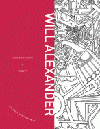 Compression & Purity – by Will Alexander (City Lights, 2011)
Compression & Purity – by Will Alexander (City Lights, 2011)
Another one from prolific surrealist poet Will Alexander.
“I am never given due as to sum or proportion / I am seen as the source of something leprous / as no longer the motive of who I was thought I was shaped to be.”
6 Books: Maggie Nelson on Nonfiction
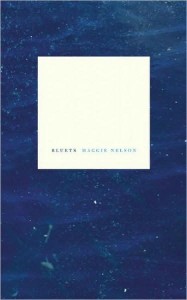 This is Part III in a series where I ask writers I like for 6 book recommendations according to some loose guideline. Part I is here; Part II is here. This week is another installment on nonfiction, this time brought to us by Maggie Nelson, author of Bluets (Wave Books), the forthcoming The Art of Cruelty: A Reckoning (Norton), and five other books of poetry, criticism, and essay.
This is Part III in a series where I ask writers I like for 6 book recommendations according to some loose guideline. Part I is here; Part II is here. This week is another installment on nonfiction, this time brought to us by Maggie Nelson, author of Bluets (Wave Books), the forthcoming The Art of Cruelty: A Reckoning (Norton), and five other books of poetry, criticism, and essay.On Pretense, Piss Christ & Pizza
— Susan Sontag, “Project for a Trip to China”
So I would start out with the dictionary definition of pretense, which would be useful actually, because I feel that many people do not know it, but that would be perceived as pretentious; but then I’ve already made the presumption that many don’t know the meaning of pretense, and thus pretentious and so; in fact, the whole premise of this is totally. An obscure quote? Semi-colons? What an ass, like lifting one cheek. Okay so.
I feel that 99% of the time the word pretentious is used in one very general way: to describe something someone doesn’t understand; either the phrasing of a thing, or the reach, the jargon, whatever. Now you might say, well look Reynard sometimes people are acting the fool and so I call them out when I need to call them out. And I feel you on that (also that is a very polite way to speak to me, thank you). It’s the literary equivalent of honking your horn. Some people honk at white space. I like it. Some people do not enjoy cheese. I can not comprehend their decisions. Why should we agree? Nothing says that anywhere. Some words have such totality, it frightens people. They cannot pry the concept from the object, even if the object does not exist in front of them, which is statistically VERY LIKELY.
The problem is most people use their horn for no reason. Most of the time when they say “pretentious” what people mean is “bombastic.” Bombast is inflated speech, using big words for no real reason, other than to sound smart. If the words are not used incorrectly, because they were culled from some thesaurus with passive regard for the range of their meanings, they are usually used in a way that either adds no greater specificity to the sentence or distracts the reader from the intended meaning. We know all this. So yeah, this is not good. But it is not pretentious either. And you don’t need to use your horn so much.
Then there are those times, like when some jerk doesn’t use his blinker, when a writer’s tone is, in your opinion, pretentious. But look, all tones are affected, even those that come naturally. That’s my opinion anyway. And at a certain point, all of it becomes a matter of opinion. Isn’t everything though? One could try to cite every sentence one writes, but one must eventually face the problem of threes, which is who and how and why? Okay, let’s simmer down a bit. I think I was trying to say something here. Maybe I should have written this essay in a satirical style, so as to deflect whatever criticisms a reader might have into the void of chuckledom and “I have a t-shirt that says I’m with stupid, shall I put it on?” Some people think everything on this site is pretentious. The thing is, those people are right.
To pretend is, of course, the very root of all literary and artistic creation. Were it not for pretense, nothing would get done. No one would tell a single story. Let alone write a poem. All literature is pretentious.
To be against pretense is to be against creation.
being tired, being inspired
I came across this gem last night while I was not sleeping. I’m particularly interested in Mr. Tate’s idea of “writing out of exhaustion” — that writing while tired (either physically or mentally, I guess) can result in material interestingly distinct from writing written while one is “refreshed.” This seems to be the polar opposite of what Maggie Nelson expresses here (via here) — that periods of inactivity are somehow inherent or necessary to periods of activity. I don’t know… I feel like I see the merits of both. There are times when I’m particularly energized and times when I’m not, but I like to write through it all. How bout you guys: write to exhaustion or write through exhaustion? THOUGHTS?
Reading Notes

1. In grad school I took a wonderful course on the poetry (and lives) of Elizabeth Bishop and Robert Lowell taught by the poet Gail Mazur. I was fascinated, in particular, with Robert Lowell’s mental illness and how it affected his artistic life. Lowell’s poem “Eye and Tooth” is ostensibly about a cut cornea (“My whole eye was sunset red,” it begins), but in the end it’s about manic depression and how, duh, it tinges the way he sees the world:
(1) I read Maggie Nelson’s Bluets yesterday afternoon. That book is a serious bruiser, and beautiful. “That each blue object could be a kind of burning bush, a secret code meant for a single agent, an X on a map too diffuse ever to be unfolded in entirety but that contains the knowable universe. How could all the shreds of blue garbage bags stuck in brambles, or the bright blue tarps flapping over every shanty and fish stand in the world, be, in essence, the fingerprints of God? I will try to explain this.”
(2) SPD has a few copies of Maldoror and The Complete Works of Comte de Lautremont from Exact Change for almost 50% off. You should really own this book.

